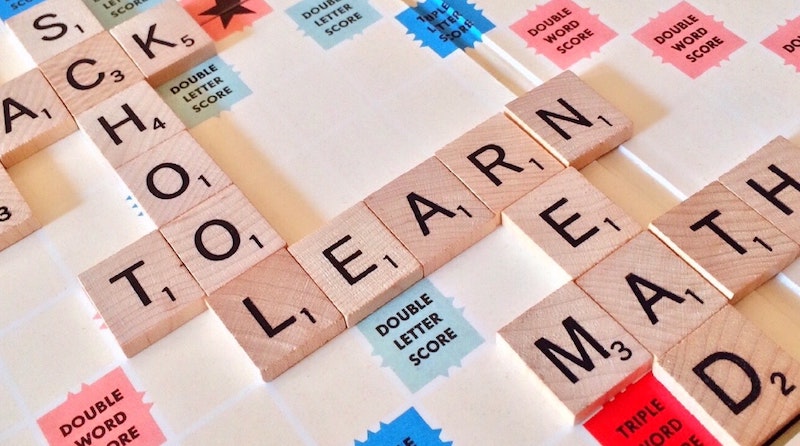Are you struggling to focus on what you need to do? Do your thoughts keep wandering even when you’re trying hard not to think about anything at all? There are plenty of things that can cause this, but one thing that often gets overlooked is a lack of mental stimulation.
It’s impossible for our brains to stay focused if we don’t give them enough “work” sometimes. This article will explore the benefits of word games and how they can help improve your ability to focus during your day-to-day activities.
Word Games: An Introduction
There are many different types, and they can be played alone or with two or more players. They may have a theme such as animals, food items, occupations, or words from which you make sentences or phrases (known as word jumbles). Some games require you to guess an associated word during each round (e.g. Mad Libs).
Other examples include crossword puzzles, Scrabble®, Hangman™, and Boggle®. There’s also Scrabble, Words With Friends ™, and computerized versions such as Wheel Of Fortune®: Word Puzzles Edition. Anagrams require the players to unscramble word(s) and then use them as a word in another puzzle. All these games can be fun and highly interactive whether you’re playing with friends or family, using a board game or smartphone.
Word Scramblers And Word Finders
For those who don’t like word puzzles or who need some extra help, they can be a valuable option. If someone wants to know how to boost focus during a difficult game, they could go online and access the relevant host site.
A person who’s been blankly staring at a miscellaneous letter combination would soon be able to find new words this way. Sites like https://www.unscramble.me/ show that wordfinder technology avoids all letter combinations that don’t appear in a dictionary. This makes it ideal for games like Scrabble, anagrams, or Words With Friends, and people can access it from a computer, phone, or tablet.
Another option is Unscrambled Words, which allows you to type in all the letters you have to work with and then get a list of words that can be created. In addition, you can specify if a word needs to start with, end with, or contain letters in a specific order, which is extra helpful when you’re aiming for double or triple-letter tiles. This is also useful for Wordle, as it includes a mode specifically for solving World challenges.
The Benefits Of Word Games
People who play word games are able to boost their focus and word power. They can be used as an educational tool for children or adults, and they’re great for helping people build their vocabulary skills.
They make great training exercises for those studying for school exams since tests require a lot of memorization and the ability to think quickly under pressure. Adults benefit from word games too, finding it a great source of stress relief after a tiring day at work.
Scrabble
This famous board game can help you improve your memory skills and think more creatively. It’s important to build words with each letter, but people often struggle if they end up with long strings of vowels. Scrabble can be played at home or online, by yourself or with friends. Playing Scrabble can be a great way to keep your mind sharp, and it’s also very social. It’s been shown through research that playing Scrabble with friends increases happiness in older adults by 27%.
Players often find themselves challenged because they cannot use certain letters such as “Z” or “X”. Scrabble forces players to think creatively when using their vocabulary skills and this leads to increased mental stimulation, in turn promoting brain health.

Words With Friends
The game was created in 2005 by David Fanjul and John Baker after brainstorming ideas on how to improve one-on-one Scrabble games. It requires you to think of words that are connected, and you can play with anyone who is online at the same time as you. You gain points when you make matches and lose them if you don’t. Words With Friends is also educational.
Games like this help people focus better in their day-to-day lives by challenging them with words they may not know or be familiar with. They force players’ minds to think critically about how those words may be used elsewhere in order to make bigger gains later on in the game.
Anagrams
Anagrams require you to find a word, phrase, or sentence from a random set of jumbled letters. The person solving the anagrams will find these in various sequences. For example: “The quick brown fox jumps over the lazy dog” can be unscrambled into “A quixotic fracas arises in Yugoslavia.” Such mental exercises are good for your brain because you have to use logic and reasoning skills.
This particular type of puzzle may help patients with degenerative cognitive disorders such as Alzheimer’s disease or dementia. It can improve peoples’ memory function while exercising other parts of their brains that are not typically used during the day.
Hangman
This is where someone comes up with a word, phrase, or sentence, not telling the other person what it is. The opponent will try to guess which letters have been chosen in order to slowly identify the full answer. Each time they get a letter wrong they will be nearer to losing, and a hangman picture will be drawn step by step.
The benefits of playing hangman are that it requires concentration and problem-solving skills. It is also a good way to improve your memory and word recalling abilities, and it can help you think more laterally. The game can be played by children or adults of any age. For the best results, the players should have an understanding of spelling and basic vocabulary so that they are able to correctly guess the letters.
Crosswords
It’s common to see these on the backs of newspapers and magazines, and they are a great way to exercise your mind. Crosswords can help build vocabulary by teaching people words they might not otherwise know. It’s been shown that it improves reading comprehension skills, and aids in learning new languages.
One study involved participants playing games like crossword puzzles for six hours over three days. Their mental agility (including memory storage and retrieval), improved dramatically compared with those who didn’t play.
It’s now become clear that word games can have a beneficial impact upon peoples’ minds, mental health, and thinking processes. Perhaps you are in need of a little more focus? This could well be your solution.

